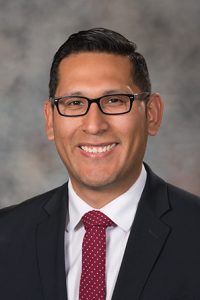Alternative high school equivalency tests proposed
Nebraskans seeking a diploma of high school equivalency would have an option other than the General Education Development tests under a bill heard Feb. 10 by the Education Committee.
LB1153, introduced by Omaha Sen. Tony Vargas, would require the state commissioner of education to approve at least two alternative tests for a person seeking a diploma of high school equivalency to choose from to demonstrate that they have attained a typical high school graduate’s educational development and abilities.
The bill would require the commissioner to make testing using each of the approved tests available at locations across the state.
LB1153 also would allow the State Board of Education to develop and make available at least one skill-based or competency-based assessment in addition to the alternative tests approved by the commissioner.
Vargas said the GED is the only high-school equivalency test approved by the board. In 2014, the test’s developer eliminated the option to take GED using paper and pencil, he said, and it also increased the registration fee and added fees for practice tests.
Vargas said the changes made the GED less accessible to those with low computer literacy and those whose first language is not English.
“LB1153 would remove barriers put in place by the changes to the GED and offer choice for Nebraskans who don’t have a high school diploma and who are ready to work toward their educational goals,” he said.
Since the 2014 changes, Vargas said, 27 states have approved the TASC and HiSET as alternatives to the GED. He said those tests are rigorous, available nationwide and remove many of the barriers created by the updated GED.
Eric Savaiano of Nebraska Appleseed testified in support of LB1153, saying that a high school diploma or high school equivalency is required for admission to trade schools, higher education and the military. Many hiring managers see a high school education as essential, he said.
Savaiano said GED participation and completion rates fell dramatically after the 2014 changes. From 2013 to 2015, he said, the number of Nebraskans taking the GED decreased by 71 percent and the number of those completing it decreased by 80 percent.
“LB1153 would allow [Nebraska] to offer an alternative exam to help more Nebraskans get the education they need to get through the door with employers and better provide for their families,” Savaiano said.
Alejandra Ayotitla, coordinator of the adult education program at El Centro de las Américas, also testified in support. Ayotitla, a GED tutor, said the computer-only GED creates obstacles for her students, especially the section that tests writing ability.
“In addition to learning the substance of their exam,” she said, “they have to learn to type very quickly.”
Most students take the writing section several times before passing, which is discouraging and costly, Ayotitla said.
Francisca Espinola, one of Ayotitla’s students, also testified in support. Espinola said it was easier for her to travel to a community college in Wyoming to take a paper-based high school equivalency test than to take the computer-based GED in Nebraska. She said the GED’s time restrictions make the reading and writing sections more difficult when using a computer.
Brian Halstead testified in opposition to LB1153 on behalf of the state Department of Education, primarily because of the estimated cost to develop the proposed skill-based or competency-based high school equivalency assessment.
According to the department’s fiscal note, such a test would take three to five years to develop and implement at an estimated cost of $10 million.
Scott Salesses of GED Testing Service also testified in opposition. He said the GED was updated to ensure that adults have the skills needed for today’s economy and that they are prepared for higher education.
Salesses said the number of people taking high school equivalency tests nationwide has decreased over the past few years, regardless of which tests are available, because the job market has been strong and more people are graduating from high school.
The committee took no immediate action on the bill.

